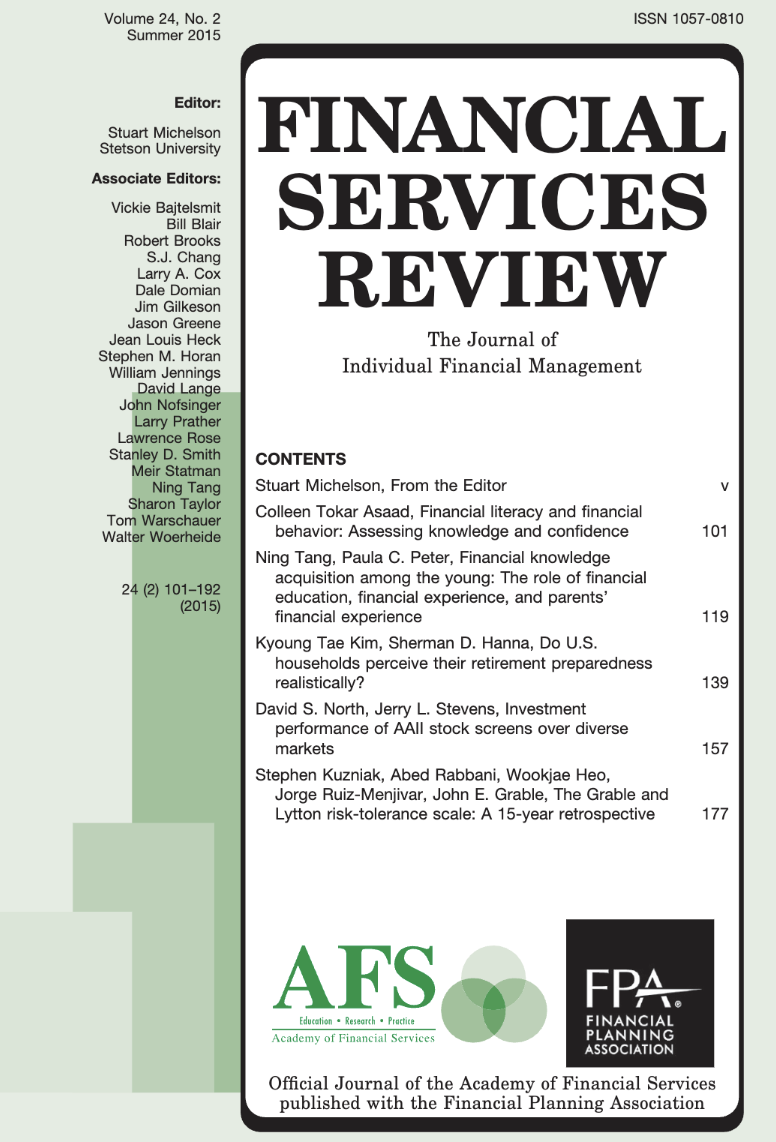Financial literacy and financial behavior
Assessing knowledge and confidence
DOI:
https://doi.org/10.61190/fsr.v24i2.3236Keywords:
Financial literacy, Confidence, Overconfidence, Financial behaviors, RiskAbstract
This article explores how financial literacy, comprised of both actual financial knowledge and perceived financial confidence, affect financial decisions. Using national survey data from the United States, results indicate that financial confidence is a critical component of financial literacy and is important across all knowledge levels. However, overconfident individuals, or those with high confidence (or self-assessed) knowledge but low actual knowledge, have a higher propensity to engage in risky (costly) financial behaviors. Together, results suggest that financial literacy initiatives should focus not only on factual knowledge, but on helping individuals achieve a healthy dose of confidence.
Downloads
Published
How to Cite
Issue
Section
License
Copyright (c) 2015 Academy of Financial Services

This work is licensed under a Creative Commons Attribution-NonCommercial 4.0 International License.
Author(s) retain copyright and grant the Journal right of first publication with the work simultaneously licensed under a Creative Commons Attribution-NonCommercial 4.0 International License that allows to share the work with an acknowledgment of the work's authorship and initial publication in this Journal.
This license allows the author to remix, tweak, and build upon the original work non-commercially. The new work(s) must be non-commercial and acknowledge the original work.


